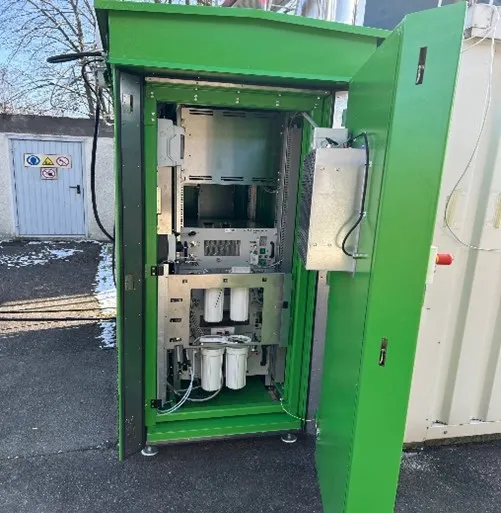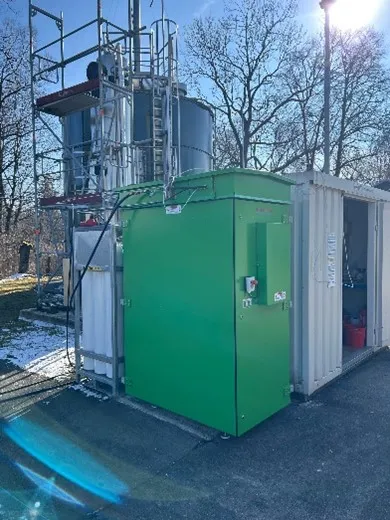The microbiological conversion of H2 and CO2 to CH4 under anaerobic conditions by methanogenic microorganisms is known as a part of the process from biogas plants or digesters. A particularly efficient reactor concept is the gas-filled trickle bed reactor, in which the microorganisms are immobilized on growth bodies.
In the finished DemoMeth project, a pilot reactor with an active reaction volume of 0.8 m3 was installed at the Garching sewage treatment plant. Raw biogas from the digester's gas storage tank was used as the CO2 source, enabling the biogas to be upgraded to feed-in quality (> 96 % CH4) at the point of origin. A stable methane production rate of 6 m3/(m3 reaction volume*d) was achieved in the pilot reactor.
Following a 1.5-year shutdown period, the pilot reactor was fully refurbished and recommissioned as part of the new KomMeth project. The results of the recommissioning after prolonged inactivity show that the presence of a biofilm contributes to the remarkable resilience of trickle bed methanation systems and enables a rapid resumption of high methanation rates with a CH4 content of up to 98 % in the product gas even after prolonged inactivity. The concept is now being tested under real conditions and the H2 supply from gas bundles is being replaced by the integration of an electrolyzer. The coupling of electrolysis and methanation is intended to demonstrate the functionality of the overall process and identify and address any challenges that arise, for example with regard to the necessary intermediate storage of H2.
We look forward to an exciting exchange and demonstration of the electrolysis at the TUM.Hydrogen and PtX network meeting on April 4, 2025 and individual guided tours on request.
Technical data: 2 x AEM electrolysis module (Enapter Electrolyser 4.1) max. 1,000 NL/h H2
Project manager: Prof. Dr.-Ing. habil. Konrad Koch
Project manager: Christian Wenzel, M.Sc. and Xavier Niebauer, M.Sc.
Funding: Bavarian State Ministry of Economic Affairs, Regional Development and Energy
Cooperation: Bavarian State Institute for Agriculture

